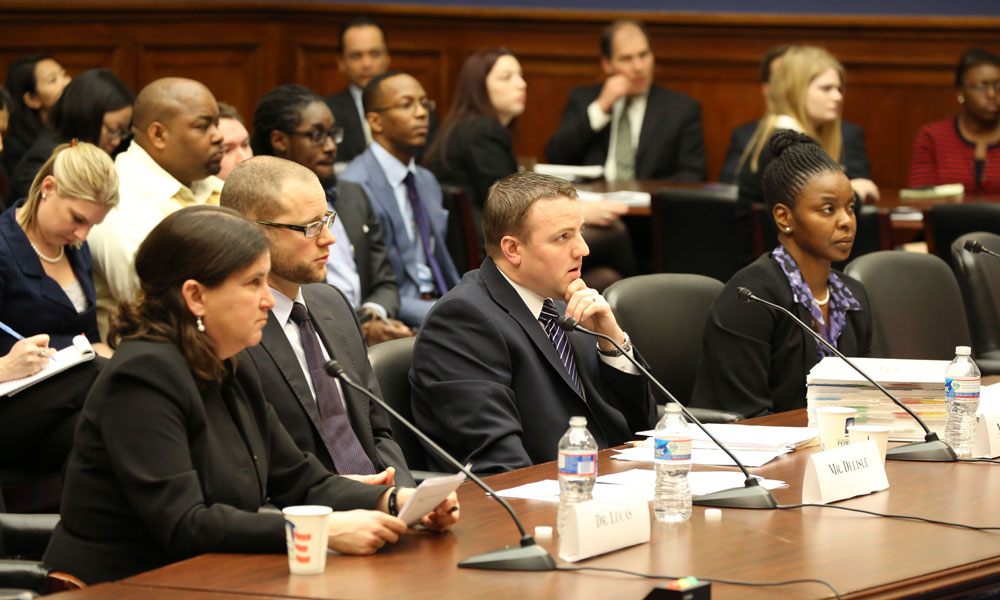
Big Day on the Hill for Student Loan Group
When a House committee tackled one of the biggest issues facing many graduates—the rise of student loan debt—the National Association of Student Financial Aid Administrators was there leading the charge.
When Rep. John Kline (R-MN) went looking for voices for a hearing on student loans, one association took the opportunity to take its message to the Hill.
Justin Draeger, president and CEO of the National Association of Student Financial Aid Administrators (NASFAA), was one of four speakers at the hearing of the House Committee on Education and the Workforce on Wednesday, expressing concerns facing his industry, students, and graduates. More details:
The issue: With many college students finding themselves on the hook for tens of thousands of dollars in student loans by the time they graduate, the House committee met on Wednesday in an effort to learn more about the issue and how to stabilize and strengthen the loan system. The interest rate on subsidized Stafford Loans is expected to rise unless Congress votes by June 30 to keep a lower rate.
The testimony: In prepared remarks, Draeger told the committee that the current student loan interest policy—in which government loans have fixed interest rates that are often much higher than market rates—“has undermined the very feature fixed interest rates were supposed to provide: predictability. For the last two years we’ve run up against harsh budget realities that have called into question the sustainability of fixed interest rates and made them anything but predictable.”
NASFAA notes that, while many students take advantage of the Stafford Loans’ subsidized rate of 3.4 percent, few use them exclusively, making the benefit limited. If the rate had remained variable, as it was before 2006, many students would have actually fared better.
The group also argued for more authority to limit borrowing levels for certain classes of students, as well as to help protect parents from financial fallout that comes as a result of over-borrowing. “If the mortgage meltdown taught us anything, it is that basic and proper underwriting not only protects lenders, it also protects borrowers,” Draeger said.
Other voices: Also at the hearing, Jason Delisle of the New America Foundation’s Federal Education Budget Project argued in favor of a long-term plan for setting student loan interest rates. MIT professor Deborah Lucas noted that the value of government assistance varies widely year to year. And the Alliance for Excellent Education’s Charmaine N. Mercer said that changes outside of the full reauthorization of the Higher Education Act have hurt financial aid for students.
Have you spoken in front of Congress in support of your association’s interests? How was the experience, and what advice would you give to other leaders sitting at the witness table? Give us your take in the comments.
NASFAA's Justin Draeger, center. (U.S. government photo)






Comments